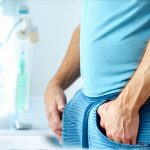Many people experience frustrating “weekend urge cycles” – periods where they find themselves needing to urinate much more frequently, often disrupting sleep or leisure activities during their time off. This isn’t necessarily a sign of a medical problem; it’s often linked to changes in routine and hydration habits when the structure of the workweek dissolves. During weekdays, most individuals operate under consistent schedules that naturally regulate fluid intake and bathroom breaks. However, weekends frequently bring altered sleep patterns, increased social activities (and potentially alcohol or caffeine consumption), and less structured time – all factors impacting bladder health and perceived urgency. Understanding why this happens is the first step towards regaining control and enjoying truly restful weekends.
The core issue isn’t usually an increase in overall fluid intake, but rather a shift in how fluids are consumed and when. Weekday hydration often occurs steadily throughout the day, interspersed with work tasks and movement, allowing the body to process fluids efficiently. Weekend habits tend toward larger volumes of liquid at once – during meals, social gatherings, or simply while relaxing – coupled with periods of inactivity. This can overwhelm the bladder’s capacity and lead to a heightened sense of urgency, even if total fluid intake remains comparable to weekdays. Addressing this requires a proactive approach to hydration scheduling that mimics some of the consistency of the workweek, rather than abandoning it altogether.
The Science Behind Weekend Urge Cycles
The human body operates on internal rhythms known as circadian rhythms, influencing various physiological processes including bladder function. Our kidneys filter blood continuously, producing urine as a byproduct. This process is influenced by hormones like vasopressin (ADH), which regulates water reabsorption in the kidneys and impacts urine production. During sleep, ADH levels naturally increase, reducing urine output – this explains why most people can sleep through the night without frequent bathroom trips. However, disrupted sleep schedules on weekends, common for many, throw off these hormonal balances. Later bedtimes, longer lie-ins, and inconsistent wake times all contribute to altered ADH production, leading to increased nighttime urination (nocturia) and daytime urgency. Considering how hydration cycles that don’t disturb sleep can impact this is crucial.
Furthermore, weekend social activities often involve beverages that are diuretics – meaning they increase urine production. Caffeine in coffee or tea, alcohol, and even sugary drinks can all contribute to this effect. These fluids aren’t inherently bad, but consuming them without a corresponding hydration strategy can exacerbate urge cycles. It’s also important to recognize the psychological component; stress reduction on weekends can sometimes lead to increased awareness of bodily sensations, including bladder signals. This isn’t necessarily a negative thing, but it can amplify perceived urgency if underlying hydration imbalances exist. Essentially, weekend urges are often a complex interplay between physiological changes and lifestyle factors. To help plan for this, exploring urge management planning for weekend activities is recommended.
Finally, prolonged periods of sitting or inactivity contribute significantly to the problem. Movement helps with lymphatic drainage and overall fluid balance. When we’re less active, fluids tend to accumulate in lower extremities, potentially increasing pressure on the bladder and triggering urgency sensations. This is why individuals who spend most of their workweek sitting may experience even more pronounced weekend urge cycles when they transition to leisure activities that involve prolonged relaxation.
Building a Weekend Hydration Plan
Creating an effective hydration plan for weekends requires a mindful approach—not restrictive dieting, but rather strategic timing and fluid choices. Here are some steps:
- Establish a Baseline: For 2-3 weekdays, track your fluid intake – including water, coffee, tea, juice, and even fluids from food. This helps you understand your typical hydration patterns.
- Morning Hydration: Start the weekend with a glass of water upon waking. This rehydrates the body after sleep and sets a positive tone for the day. Avoid large volumes immediately – sip it gradually.
- Consistent Sips: Instead of gulping down large amounts of fluid, aim to drink smaller quantities consistently throughout the day. Carry a reusable water bottle as a visual reminder.
- Limit Diuretics Strategically: Enjoy your coffee or alcoholic beverages if you like them, but do so in moderation and balance them with equal amounts of water.
The key is to avoid sudden spikes in fluid intake followed by prolonged periods of dehydration. Think of it as maintaining a steady state rather than following peaks and valleys. This doesn’t mean eliminating enjoyable drinks; it simply means being more conscious about when and how you consume them. Hydration’s about balance. Understanding predictable fluid patterns that reduce urge can help create this balance.
Managing Nocturia & Sleep Disruption
Nocturia—waking up frequently to urinate at night—is a common contributor to weekend fatigue and disrupted sleep. Several strategies can help minimize nighttime interruptions:
- Fluid Timing: Avoid drinking large amounts of fluids within 2-3 hours of bedtime. This allows your kidneys time to process the fluid before you go to sleep.
- Evening Diet: Be mindful of your evening meal. Reduce sodium intake, as it promotes water retention and can increase urine production overnight.
- Bladder Training: If you consistently wake up at a certain time to urinate, gradually try delaying urination for a few extra minutes each night. This helps train your bladder to hold more volume. However, do not force this if it causes discomfort.
It’s also important to create a relaxing bedtime routine that signals to your body it’s time to sleep. Avoid screens (phones, tablets, TVs) at least an hour before bed, as the blue light emitted can interfere with melatonin production and disrupt sleep patterns. A warm bath or reading a book are good alternatives. If nocturia persists despite these efforts, consult a healthcare professional to rule out underlying medical conditions.
Lifestyle Adjustments for Bladder Health
Beyond hydration scheduling, several lifestyle adjustments can contribute to improved bladder control and reduced urgency:
- Regular Exercise: Physical activity strengthens pelvic floor muscles which support the bladder and urethra. Aim for at least 30 minutes of moderate-intensity exercise most days of the week.
- Pelvic Floor Exercises (Kegels): These exercises strengthen the muscles that control urination. Practice them regularly, even when you don’t feel an urge to urinate. There are many resources online demonstrating proper technique.
- Maintain a Healthy Weight: Obesity can put extra pressure on the bladder and contribute to urinary incontinence.
- Avoid Constipation: Constipation can also increase pressure on the bladder. Ensure adequate fiber intake and stay well hydrated to maintain regular bowel movements.
Remember, building sustainable habits is far more effective than quick fixes. Small, consistent changes to your hydration schedule and lifestyle are the key to minimizing weekend urge cycles and enjoying a more restful and enjoyable time off. Don’t aim for perfection; focus on making gradual improvements that you can realistically maintain over the long term. Integrating small daily shifts that ease urination cycles is a good starting point. For further insight, consider exploring weekend simplicity habits for pelvic calm. Many find these routines helpful in reducing overall stress and promoting bladder health.
Furthermore, understanding how your body responds to different foods can be beneficial. Examining evening light foods that reduce urge activation may help you identify dietary triggers. And if you’re struggling with nighttime awakenings, reviewing hydration scheduling to reduce nighttime urination might offer practical solutions. Remember that consistent hydration is key; explore ways to incorporate hydration cycles that don’t disturb sleep into your weekend routine.
Finally, don’t underestimate the power of movement. Even gentle activity can help alleviate pressure on the bladder and promote healthy urinary function. Learning more about comfortable clothing for long days with urge cycles may also improve comfort and reduce anxiety surrounding urgency.





















